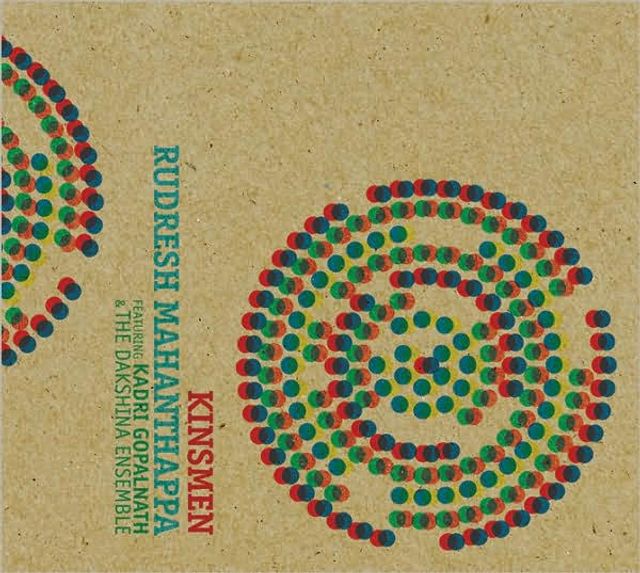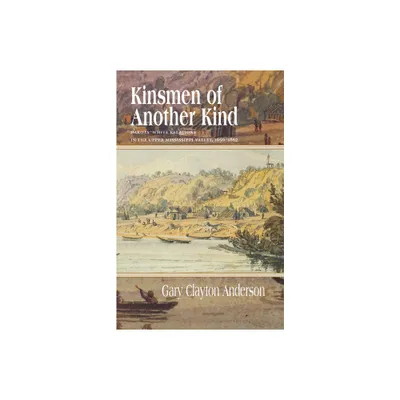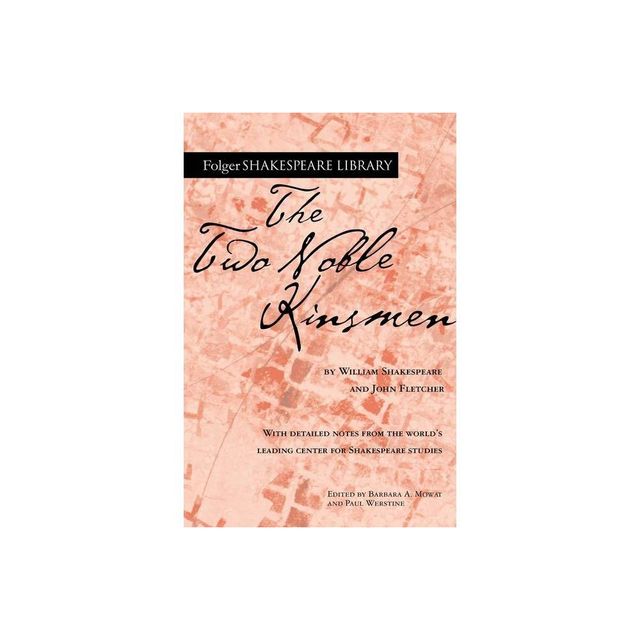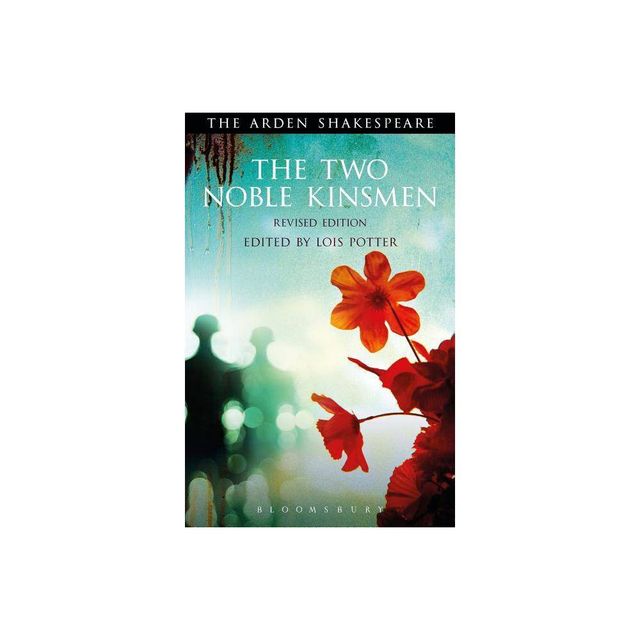Home
Kinsmen
Loading Inventory...
Barnes and Noble
Kinsmen
Current price: $17.99


Barnes and Noble
Kinsmen
Current price: $17.99
Loading Inventory...
Size: OS
*Product Information may vary - to confirm product availability, pricing, and additional information please contact Barnes and Noble
For
Kinsmen
,
Rudresh Mahanthappa
's fifth album as leader, he trades in his standard sax quartet for the hybrid American jazz/South Indian classical
Dakshina Ensemble
, co-led by Carnatic saxophone legend
Kadri Gopalnath
. Guitar, bass, and drum kit are joined by violin and mridangam and the leaders' two saxophones; meeting squarely between the two traditions. There is a strong Indian flavor to the soloing of both
Gopalnath
and his longtime violin player
A. Kanyakumari
, and the melodies are Indian inspired but the music only sounds purely Carnatic in spots. No, this is a jazz album and it swings mightily through most of the program. There are five main pieces, each with a solo instrumental introduction (known in Indian music as the alap) by a different player (OK, only four pieces get an alap, but one piece gets two of them). After
Rudresh
's alap (
"Introspection"
), the band charges out with the scorching
"Ganesha."
"Longing"
is as languid and bittersweet as the title suggests.
"Snake!"
has a very Carnatic sounding beginning with just violin, sax, and mridangam before giving way to an uptempo
"snake"
charmer vibe which opens into a jazzier guitar/sax conversation then back to
charming.
"Kalyani"
is more contemplative with a really nice faux sitar solo from
Rez Abbasi
.
"Convergence (Kinsmen)"
could well be the album highlight, with great soloing all around and, as on
"Snake"
!, some particularly hot drumming from royal hartigan.
Abbasi
's double-timing of the melody is great too. The tunes are written with excellent countermelodies and everyone takes full advantage of the ample solo space throughout the album while never losing sight of the melody. Another interesting thing is the way instruments will sit out at times, creating a more intimate conversational space like between the sax and mridangam on
"Kalyani,"
or the guitar/bass/mridangam and sax/drum kit sections of
"Convergence (Kinsmen)."
It's also really interesting to contrast the sax styles of
Mahanthappa
and
(they're easy to tell apart) because they're coming to common ground from very different traditions. Others have attempted a similar melding of traditions:
John Handy
Ali Akbar Khan
cut a couple records together and
John McLaughlin
had his original
Shakti
project around the same time (mid-'70s). But both those projects were more firmly rooted in Indian music. As great as some of that material is,
is arguably a more successful fusion of the two traditions since it blends them more equally. Regardless, it's one great album. In releasing
Amir ElSaffar
's
Two Rivers
(which also features
and bass player
Carlo De Rosa
),
Pi Recordings
is pointing the way to some fascinating new directions in jazz. Very well done. ~ Sean Westergaard
Kinsmen
,
Rudresh Mahanthappa
's fifth album as leader, he trades in his standard sax quartet for the hybrid American jazz/South Indian classical
Dakshina Ensemble
, co-led by Carnatic saxophone legend
Kadri Gopalnath
. Guitar, bass, and drum kit are joined by violin and mridangam and the leaders' two saxophones; meeting squarely between the two traditions. There is a strong Indian flavor to the soloing of both
Gopalnath
and his longtime violin player
A. Kanyakumari
, and the melodies are Indian inspired but the music only sounds purely Carnatic in spots. No, this is a jazz album and it swings mightily through most of the program. There are five main pieces, each with a solo instrumental introduction (known in Indian music as the alap) by a different player (OK, only four pieces get an alap, but one piece gets two of them). After
Rudresh
's alap (
"Introspection"
), the band charges out with the scorching
"Ganesha."
"Longing"
is as languid and bittersweet as the title suggests.
"Snake!"
has a very Carnatic sounding beginning with just violin, sax, and mridangam before giving way to an uptempo
"snake"
charmer vibe which opens into a jazzier guitar/sax conversation then back to
charming.
"Kalyani"
is more contemplative with a really nice faux sitar solo from
Rez Abbasi
.
"Convergence (Kinsmen)"
could well be the album highlight, with great soloing all around and, as on
"Snake"
!, some particularly hot drumming from royal hartigan.
Abbasi
's double-timing of the melody is great too. The tunes are written with excellent countermelodies and everyone takes full advantage of the ample solo space throughout the album while never losing sight of the melody. Another interesting thing is the way instruments will sit out at times, creating a more intimate conversational space like between the sax and mridangam on
"Kalyani,"
or the guitar/bass/mridangam and sax/drum kit sections of
"Convergence (Kinsmen)."
It's also really interesting to contrast the sax styles of
Mahanthappa
and
(they're easy to tell apart) because they're coming to common ground from very different traditions. Others have attempted a similar melding of traditions:
John Handy
Ali Akbar Khan
cut a couple records together and
John McLaughlin
had his original
Shakti
project around the same time (mid-'70s). But both those projects were more firmly rooted in Indian music. As great as some of that material is,
is arguably a more successful fusion of the two traditions since it blends them more equally. Regardless, it's one great album. In releasing
Amir ElSaffar
's
Two Rivers
(which also features
and bass player
Carlo De Rosa
),
Pi Recordings
is pointing the way to some fascinating new directions in jazz. Very well done. ~ Sean Westergaard













